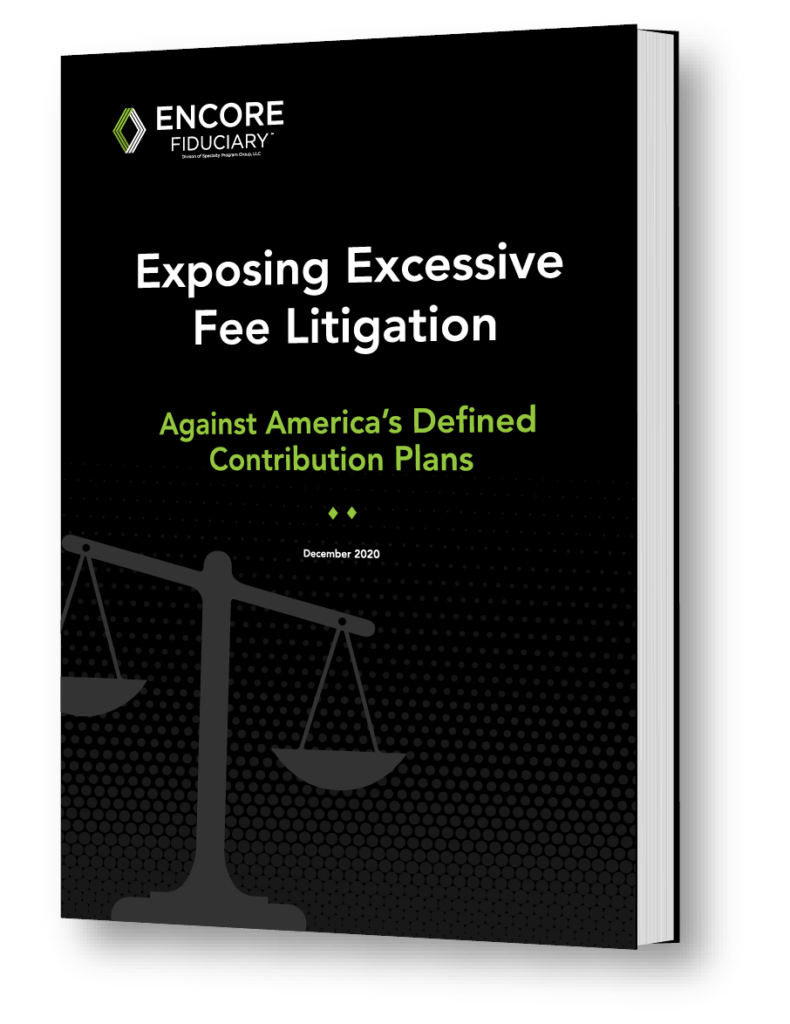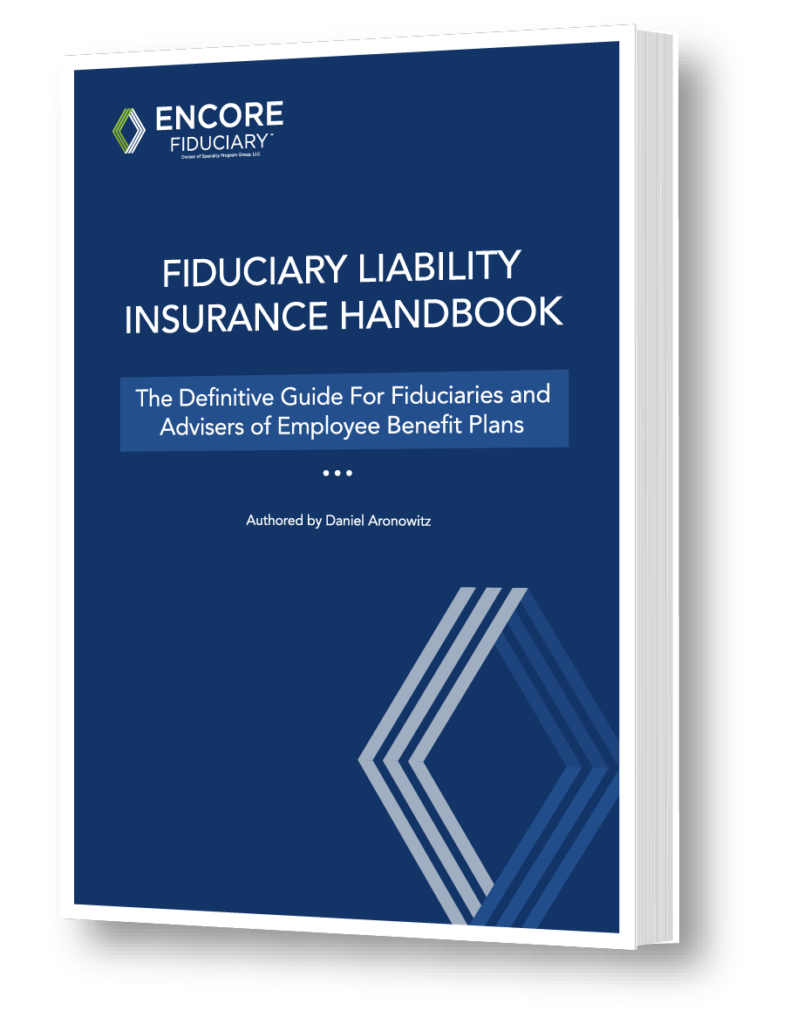By Daniel Aronowitz
A recent NAPA blogpost asked whether “A New Wave of Fiduciary Litigation Looms” involving health plans. To this foreboding question, a buzz is growing in ERISA legal circles as the Schlichter Bogard law firm sends LinkedIn solicitations asserting potential misconduct by the health plans sponsored by State Farm, Target, and other companies. We can only speculate as to what excess fees the Schlichter firm is “investigating,” but most defense lawyers believe he will try to create legal liability for plan sponsors under ERISA or the Consolidated Appropriations Acts of 2021 for unreasonable or “excessive” health plan fees. But before plaintiff law firms can translate their success in excessive fee lawsuits from retirement to health plans, they should tap the breaks on their expectations with the July 18, 2023 decision in Knudsen v. MetLife Group, No. 2:23-cv-00426 (WJM) (D.N.J. July 18, 2023), which involved the threshold issue of standing to sue over health plan fees. The New Jersey court’s decision, and the recent Ninth Circuit decision in the Sequoia case, is a reminder that plan participants do not have standing to sue plan sponsors for purported excessive plan fees when their benefits are not impaired in defined benefit health plans.
The Met Life Case Alleging Failure to Allocate Drug Rebates to Plan Participants
On January 1, 2023, the Wenzel Fenton Cabassa, along with Morgan & Morgan and another law firm, filed a lawsuit on behalf of two former participants in the MetLife group health plan in the United States District Court for the District of New Jersey in a case styled Knudsen v. MetLife Group, Inc. The lawsuit alleges that MetLife “violated ERISA by diverting tens of millions in drug rebates from the Plan to itself.” Specifically, between 2016 and 2021, plaintiffs allege that the MetLife health plan earned approximately $65 million in drug rebates, and failed to allocate that money to reduce participant contributions, co-pays or co-insurance to participate in the plan. For perspective, the first plaintiff paid approximately $400 per month for medical and prescription drug coverage, as well as deductibles, co-pays, and/or co-insurance for prescription drugs; the other former employee paid approximately $500 per month to obtain health coverage under the plan. The complaint alleges that the Plan hired Express Scripts as the plan’s pharmacy benefit manager (PBM), paying compensation that ranged from $3.2 to $6.3 million per year. Plaintiffs allege that the practice of transferring the $65 million in PBM rebates to itself violated ERISA because it provided no benefit to participants, who were responsible for paying 30% of annual contributions to the Plan. The complaint alleges that transferring 100% of plan drug rebates to itself violates ERISA for four reasons: (1) the transfer of rebates, which they assert are plan assets, violates ERISA’s anti-inurement provision; (2) the transfer of rebates violates ERISA’s prohibition against transfers of assets by a plan to a party-in-interest; (3) the transfer of plan assets to itself constitutes prohibited fiduciary self-dealing for its own account; and (4) breach of fiduciary duty.
MetLife’s Motion to Dismiss
MetLife moved to dismiss the complaint on March 24, 2023 on the grounds of lack of constitutional and statutory standing and on the merits. MetLife asserted that plaintiffs lack constitutional standing because they cannot establish an injury in fact, as they cannot claim that they were denied any promised benefits from the plan. The motion to dismiss cited the Ninth Circuit Court of Appeal’s recent decision in Winsor v. Sequoia Ben and Ins. Serv., LLC, ___ F.4th —, 2023 WL 2397497, at *8 (9th Cir. Mar. 8, 2023), in which the Ninth Circuit affirmed the dismissal of ERISA claims that the plan administrator received kickbacks and excessive administrative fees on standing grounds when “plaintiffs were [only] contractually entitled to the insurance benefits that [the defendant] agreed to purchase for them with the program’s funds – benefits that plaintiffs have received.” MetLife further argued that plaintiffs lacked statutory standing because ERISA does not confer a private right of action to seek relief beyond that to which they are entitled under the Plan.
MetLife further asserted that the complaint must be dismissed for the following additional reasons on the merits: (1) the principal allegations of the complaint are refuted by the documents governing the plan, because the plan documents spell out that PBM rebates are not considered in calculating any co-payments or co-insurance under the plan, but rather that the plan sponsor applies these rebates towards plan expenses [which total $235 million from MetLife per year]; (2) it is barred by ERISA’s six-year statute of repose; (3) the trust and anti-inurement claims should be dismissed because ERISA does not prevent MetLife from designing the Plan to allocate rebates to MetLife to cover Plan expenses or from acting in accordance with the express terms of the plan; and (4) MetLife was a not a fiduciary with respect to the challenged conduct, but rather was acting in a settlor capacity in structuring benefit and payment obligations for a welfare benefit plan, and allocating rebates under the terms of the plan contract. Finally, MetLife argued that neither the Express Scripts contract, nor the drug rebates are plan assets.
The New Jersey District Court Dismisses the Case for Lack of Standing
The New Jersey court dismissed the case (without prejudice) for lack of standing without addressing the additional statute of repose, settlor, and plan asset issues on the merits raised by MetLife. The court held that the MetLife plan is analogous to the defined benefit plan that was at issue in the Supreme Court’s decision in Thole v. U.S. Bank N.A. There the Supreme Court held that participants have no standing to sue as representatives of the plan, because “in order to claim the interests of others, the litigants themselves still must have suffered an injury in fact.” The need for an injury in fact applies even when participants are suing in a derivative capacity on behalf of the plan. As the Thole Court held, there is no standing when win or lose, plaintiffs’ individual retirement benefit payments would remain the same despite alleged investment loss to the defined benefit plan. The Thole Court rejected the analogy to trust law because participants in defined-benefit plans are not “similarly situated” to beneficiaries of private trusts or to participants in a defined contribution plan.
Applied to the MetLife health plan, participants were promised certain health benefits with fixed premium and benefits that do not fluctuate with the plan’s losses or profits. Consistent with a defined benefit plan, MetLife, as the employer, is responsible for paying claims out of the employee’s contributions and bears the financial risk of any shortfall. Thus, even if plaintiffs were correct that the drug rebates should have been allocated as plan assets, plan participants have no legal right to the general pool of plan assets, just like the plaintiffs in Thole were not entitled to any additional money in the retirement plan beyond the monthly payments that they were legally and contractually entitled to receive – even if they proved that the $750m investment loss was caused by an imprudent process. Hence any asserted injury to the plan is not an injury to the plaintiffs themselves.
In addition, the court agreed with MetLife that plaintiffs did not contend, nor could they, that they did not receive their promised health benefits. Plaintiffs instead alleged that they paid excessive out-of-pocket costs, which in the context of this kind of defined benefit plan is not an individual injury. Plaintiffs’ claim that absent fiduciary mismanagement, MetLife “may” have reduced co-pays and co-insurance, or that plan participants “may” have received a proportionate distribution of rebates was “speculative and conclusory.” The court further held that “[e]ven if Plaintiffs were to succeed in their ERISA claim and any disgorged funds are deposited back into the Plan, whether each participant’s costs would be reduced or distributions would be paid out, remains conjecture.” The court thus concluded that plaintiffs “do not have a concrete stake in the outcome of this lawsuit and have not pled facts to demonstrate an individualized injury.”
The complaint was dismissed without prejudice, so plaintiffs have the right to file an amended complaint.
The Euclid Perspective
We do not accept the premise that plan sponsors have a fiduciary responsibility to ensure that what they pay for health care costs is reasonable. Instead, they have a responsibility to ensure that all promised benefits in the plan documents are delivered to participants. We also believe that any challenge to the reasonableness of health plan fees is suspect, just like most of the hundreds of excess fee cases brought against retirement plans. Plaintiff lawyers are a not a fair judge of the reasonableness of benefit plan fees. But if there are any excessive fees paid, the damages or windfall should go back to the plan sponsor responsible for paying any benefit shortfall – not plaintiff lawyers. The MetLife and Sequoia purported excess health plan fee cases are a welcome reminder that the right to sue in federal courts is not absolute. Participants who have received their promised benefits are not harmed and have no standing to sue.
Plaintiff law firms have successfully weaponized ERISA by filing hundreds of lawsuits alleging excessive fees and imprudent investment options in retirement plans. But we do not believe there is any statutory right under the CAA or ERISA to bring excess fee cases involving defined health benefit plans. To answer NAPA’s question as to whether a new wave of litigation looms, we do not know. But if it does, we believe that it deserves to meet the fate of the claims against MetLife involving the drug rebates.



